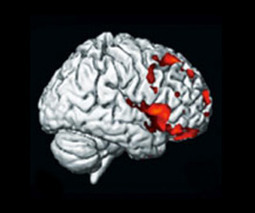Via Scoop.it – ALS Lou Gehrig’s Disease
 Neurologists may need to keep an eye out for cognitive and behavioral changes in people showing signs of ALS, according to a new study. The research team, led by Trinity College Dublin neurologist Orla Hardiman MD FRCP, found that 50% of people examined with the most common form of familial ALS identified to date also showed signs of frontotemporal lobar degeneration (FTLD). The brain disorder might result in difficulties in critical thinking, problem solving and making complex decisions. The study, which included 20 people with familial ALS harboring repeat expansions in the C9ORF72 gene, is the first to clinically describe this form of ALS. The study is one of three studies this month that confirms that repeat expansions in the C9ORF72 gene are the most common cause of inherited forms of ALS, ALS-FTLD and FTLD.
Neurologists may need to keep an eye out for cognitive and behavioral changes in people showing signs of ALS, according to a new study. The research team, led by Trinity College Dublin neurologist Orla Hardiman MD FRCP, found that 50% of people examined with the most common form of familial ALS identified to date also showed signs of frontotemporal lobar degeneration (FTLD). The brain disorder might result in difficulties in critical thinking, problem solving and making complex decisions. The study, which included 20 people with familial ALS harboring repeat expansions in the C9ORF72 gene, is the first to clinically describe this form of ALS. The study is one of three studies this month that confirms that repeat expansions in the C9ORF72 gene are the most common cause of inherited forms of ALS, ALS-FTLD and FTLD.
Via blogs.als.net

